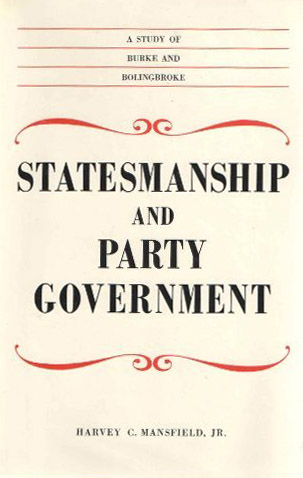University of Chicago Press, 1965.
Excerpt:
In considering the origins of party government, we face this problem: parties are universal, but party government is recent. Parties are universal because in politics men act for motives which can be and are stated in opinions. Opinions are disputable, especially opinions about the most important topics, opinions on which citizens and regimes stake their lives. Being disputable, such opinions attract and repel: they create partisans. Politics seems to be essentially partisan. There have been many regimes without visible parties and perhaps some entirely without parties. But partyless regimes are not non-partisan. They may suppress the parties which might dispute the opinions they have established, but they cannot suppress the disputability of their opinions. Parties are potential in every regime where they are not actual; and where they are actual, there are also potential parties lurking beneath every opinion taken for granted by the actual parties. The secret records of all regimes reveal private parties of politicians or courtiers not visible to the citizens or subjects, and historians have exposed the disputable assumptions of regimes which believed themselves to be founded on rock.
Since politics is essentially partisan, and since the essence of politics is clear to any unbiased observer, it is not surprising that party government is now almost ubiquitous. There is almost no regime which does not claim to have party government-which does not use, avow its use, and praise its use of a party or parties.
Online:
Program for Constitutional Government [pdf]

